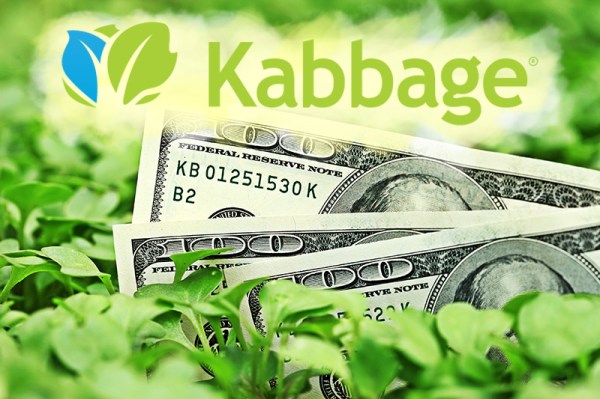Kabbage — the online platform that loans money to businesses and individuals using a wide set of online data and algorithms to measure credit-worthiness — is growing once more. The startup based out of Atlanta has raised a Series E of $135 million, and expanded its credit facility — the money it has on hand to fulfil loans — to $900 million.
Kabbage is not officially disclosing its valuation but from close sources we understand it now to have reached the billion-dollar mark.
Rob Frohwein, Kabbage’s founder and CEO, said in an interview that the investment will be used to expand the company’s business deeper into consumer lending, as well as internationally. Its consumer Karrot platform was launched last year to complement Kabbage’s primary loans business focused on online merchants and other SMBs.
“We’re at the precipice of a large expansion of Karrot,” Frohwein says. Today it represents 10 percent of our business and will be between 25 percent and 30 percent of our business by next year.”
The Series E comes from a list of both financial and strategic investors — which, in the case of a financial tech startup can often be one and the same. The round was led by Reverence Capital Partners, a regular investor in finance businesses; with participation also from several of the world’s biggest banks: Holland’s ING, Spain’s Santander (via InnoVentures); and Canada’s Scotiabank.
The fact that the investor list has so many international banks is significant for Kabbage’s future business: the company is going to use its funding to take its platform to several new markets in Europe and elsewhere, in partnership with its new backers. First up will be a product in Spain, aimed first at businesses and then individual borrowers, with further launches planned across Europe a month from now.
It’s also a sign of how Kabbage — as well as other financial tech startups like Kreditech (which itself recently raised a big round), Lending Club and Prosper — have been adept in leveraging advances in big data analytics, social media and e-commerce to steal a march on incumbent lenders — that is, traditional banks — offering loans on more favorable terms and often with lower bad debt rates.
Now the banks are sitting up and taking notice and hoping to tap into what these startups have built, rather than trying directly to replicate it themselves.
“Kabbage is one of the leading companies in the lending space, having built their technology & data platform from the ground up before they even launched to customers. Their method of using real data in the loan approval process, rather than relying solely on credit scores, is unique and innovative,” Mariano Belinky, managing partner at Santander InnoVentures, told TechCrunch. “With the company rapidly growing and with improved operating efficiency, our investment also makes sense from a financial standpoint. With full automation of the platform, the company doesn’t have to spend as much in marketing, headcount and other operating costs to scale their business.”
This growth — taking Kabbage well beyond its core market of the U.S., and pushing much further into its newer personal loan product — is part of the reason why the company expanded its credit facility so much. Before today’s announcement it was only around $260 million, Rob Frohwein, Kabbage’s founder
Many founders and investors have talked about how the going is good right now for fast-growing startups to raise funding, and that’s been the case here for Kabbage as well.
“Why $135 million?” Frohwein repeated when I asked him about the funding. “It’s not a lucky number or anything. We actually set out to raise between $75 million and $80 million, but there was a huge amount of interest. And, during the funding process, we started to get more opportunities to partner with banks to build the international business. That opens up a lot of complexity so it made sense to raise more money now.”
Going forward, the large equity raise will also mean that Kabbage itself will start to participate more directly in the credit facility and loans portion of the business.
Moving beyond being solely a platform provider to arrange the loans is a sign of how Kabbage “has skin in the game,” says Frohwein.
But it also gives the company a stronger vertical position (and better margins) going forward. To date, the company’s biggest revenue drivers have been around taking a percentage interest on the loans completed on its platform, as well as through licensing fees. Kabbage offers its tech as a white-label platform in Australia, for example, and there are plans to ramp up those kinds of partnerships significantly in the future. The company is on track for $100 million in revenues this year, the CEO tells me.
Notably, the $900 million credit facility expansion getting announced today comes from a completely different mixture of banks and other financial groups, and no overlap with Kabbage’s equity investors, he tells me. Frohwein adds that the company’s underwriting performance has been “steadily improving” over the years. When the company started putting out capital in 2011, it was lending $7 million a year. “Now we do that in just over a day,” he says.
As part of the deal, Milton Berlinski, managing partner of Reverence Capital Partners, is joining Kabbage’s board of directors.
